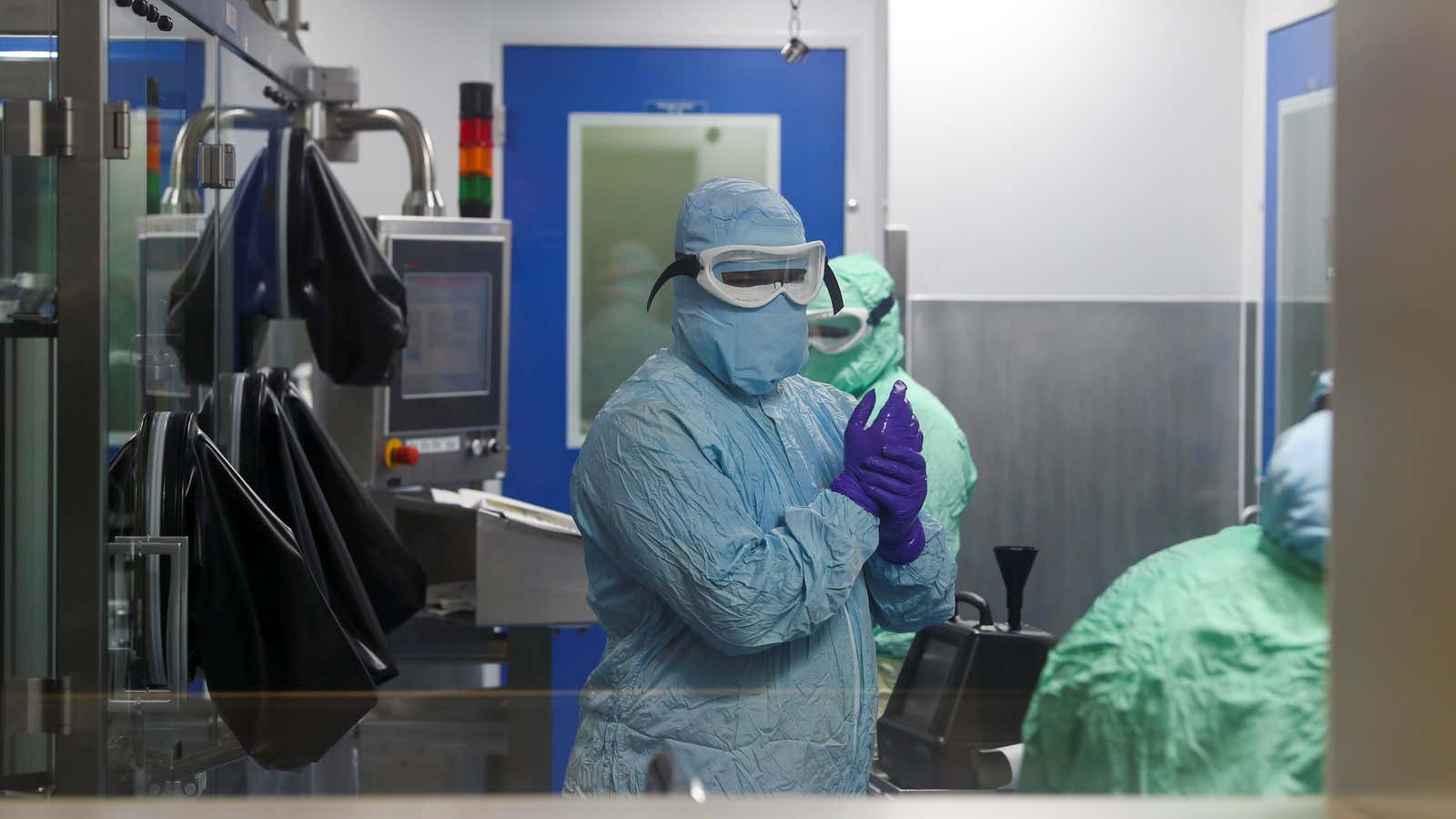South Africa is bracing for a third wave of Covid-19, expected to arrive with the start of winter this June. The predicted rise in infections could rival the deadliness of a wave that only recently subsided.
Experts say the magnitude of the surge will depend on the pace of vaccinations, the willingness of the public to abide by physical distancing and other public-health measures, and the extent to which the virus creates new variants.
A second wave of the pandemic that tailed off in February resulted in about 93,000 excess deaths, or nearly two-thirds of the total number of such deaths in South Africa since last May. South Africa has officially recorded more than 1.5 million cases of Covid-19, including more than 52,000 deaths. The toll makes South Africa the country hit hardest by the pandemic on the continent, with triple the number of cases as Morocco, which has Africa’s second-highest total.
South Africa’s second wave was fueled by a variant of the novel coronavirus known as B.1.351 that emerged there in December, as well as by a series of “rage” gatherings by students celebrating the end of school that became superspreader events. The wave forced the government to tighten lockdown restrictions, which have taken a toll on South Africa’s already struggling economy.
Since then, the B.1.351 variant, which is roughly 50% more contagious than prior variants, has been reported in at least 48 countries. “The only way of reducing the likelihood of another clinically relevant variant coming out of South Africa is to reduce transmission and boost immunity by rolling out vaccines fast,” Marc Mendelson, a professor of infectious diseases at the University of Cape Town, said last week.
The rollout has had a slow start. South Africa launched the first phase of immunizations in February, when it began administering the Covid-19 vaccine from Johnson & Johnson to frontline health-care workers. So far, nearly 183,000 of an estimated 1.2 million such workers have received the shot, with the remainder expected to be vaccinated by the middle of April. People with health conditions and others at greatest risk from Covid-19 are set to start receiving the jab in May.
Though uncertainty remains over how many of the roughly 16 million people that make up priority groups the rollout can reach by winter, the government has said it aims to scale up the effort between now and July with the anticipated arrival of 2.8 million doses of the J&J jab and the first tranche of a total of 20 million doses of the Pfizer and BioNTech vaccine.
Both the J&J and Pfizer jabs protect against severe illness from the B.1.351 variant. Officials have said they’ll need to vaccinate at least two-thirds of South Africa’s population of nearly 60 million to achieve so-called herd immunity.
In the meantime, experts are urging the public to refrain from gathering over the upcoming four-day Easter weekend, a popular time for people across the country to travel. Rules governing the latest level of lockdown restrict gatherings to 100 people indoors or 250 outdoors, provided that crowds don’t exceed half the venue’s capacity. These restrictions led leaders of the Zion Church of Christ last week to call off an annual Easter pilgrimage in South Africa’s Limpopo province that traditionally attracts millions of people.
Yet challenges with enforcing such restrictions remain. A memorial last week in South Africa’s KwaZulu-Natal province to mark the death of King Goodwill Zwelithini drew large crowds of mourners amid repeated warnings from public-health officials to observe physical distancing and mask mandates.
Excess deaths from a wave of Covid-19 that crests this winter could rival those in the second wave if the rollout of vaccines falters and holiday gatherings turn into superspreader events, according to an analysis by the health insurer Discovery Group. “We need to try as a country not to have what happened in December happen again,” Adrian Gore, Discovery’s founder and CEO, told investors last month.
Still, predicting what a third wave might look like is “fraught with problems,” says Mendelson. He notes that aside from mutations in the virus, the pace of vaccinations, and a lack of compliance with public-health measures, the impact of infection also could depend on “the possibility of other unforeseen drivers that we are yet to learn about.”
